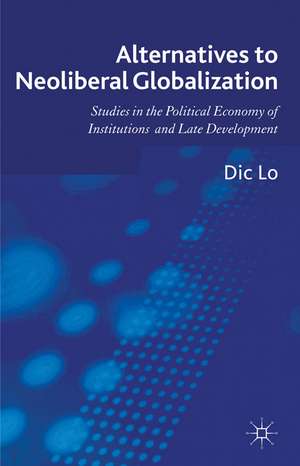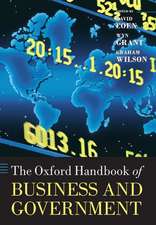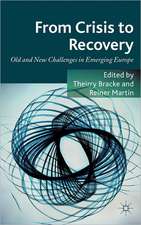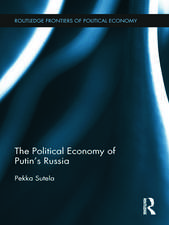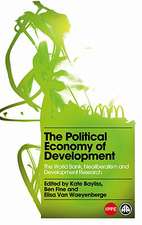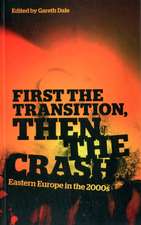Alternatives to Neoliberal Globalization: Studies in the Political Economy of Institutions and Late Development
Autor D. Loen Limba Engleză Hardback – 8 noi 2011
| Toate formatele și edițiile | Preț | Express |
|---|---|---|
| Paperback (1) | 635.01 lei 6-8 săpt. | |
| Palgrave Macmillan UK – 2012 | 635.01 lei 6-8 săpt. | |
| Hardback (1) | 640.88 lei 6-8 săpt. | |
| Palgrave Macmillan UK – 8 noi 2011 | 640.88 lei 6-8 săpt. |
Preț: 640.88 lei
Preț vechi: 753.97 lei
-15% Nou
Puncte Express: 961
Preț estimativ în valută:
122.63€ • 128.30$ • 101.87£
122.63€ • 128.30$ • 101.87£
Carte tipărită la comandă
Livrare economică 02-16 aprilie
Preluare comenzi: 021 569.72.76
Specificații
ISBN-13: 9780230347182
ISBN-10: 0230347185
Pagini: 197
Ilustrații: X, 197 p.
Dimensiuni: 152 x 229 x 18 mm
Greutate: 0.43 kg
Ediția:2012
Editura: Palgrave Macmillan UK
Colecția Palgrave Macmillan
Locul publicării:London, United Kingdom
ISBN-10: 0230347185
Pagini: 197
Ilustrații: X, 197 p.
Dimensiuni: 152 x 229 x 18 mm
Greutate: 0.43 kg
Ediția:2012
Editura: Palgrave Macmillan UK
Colecția Palgrave Macmillan
Locul publicării:London, United Kingdom
Cuprins
Overview Theoretical and Policy Doctrines Efficiency and Efficient Institutions The Division of Labour and Institutions The East Asian Phenomenon The China Paradox The Economics of Transition Feasible Socialism Conclusions
Notă biografică
DIC LO is Senior Lecturer in Economics and Chair of the Centre of Chinese Studies at the School of Oriental and African Studies, University of London, UK. He is also Co-Director of the Center of Research in Comparative Political Economy at the Renmin University of China. His research focuses on Chinese economic transformation, East Asian economic institutions and development, and comparative political economy. He is the author of Market and Institutional Regulation in Chinese Industrialization, 1978-94 and China's Transformational Growth: A Structural-Institutional Analysis.
